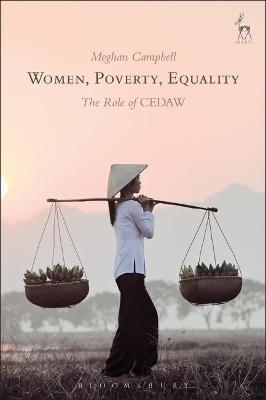
Women, Poverty, Equality
Hart Publishing (Verlag)
978-1-5099-0974-2 (ISBN)
Meghan Campbell is a Lecturer in Law at the University of Birmingham and Deputy-Director of the Oxford Human Rights Hub.
Part I
1. Mapping the Problem
I. Defining Gender-Based Poverty
II. Gender-Based Poverty as an Obstacle to Human Rights
III. The Gap in the International Human Rights Framework
IV. The Promise of CEDAW in Addressing Gender-Based Poverty
V. Mapping the Solution: An Evolutionary Interpretation of CEDAW
VI. Conclusion
2. The Drafting of CEDAW
I. Understanding the Past
II. The History of CEDAW
III. Mapping Gender-Based Poverty in the Travaux Préparatoires
IV. Explaining CEDAW’s Silence
V. Conclusion
3. Strategies for Interpreting CEDAW
I. The Art of Interpretation
II. The Interpretative Role of UN Human Rights Bodies
III. Gender-Based Poverty and the UN Human Rights Bodies
IV. Conclusion
4. Interpreting Gender-Based Poverty into CEDAW
I. Potential Interpretations of CEDAW
II. A Comprehensive Interpretation: Equality and Non-Discrimination in CEDAW
III. Nature of the State’s Obligations
IV. Conclusion
Part II
5. The Committee and Gender-Based Poverty
I. CEDAW’s Accountability Structure
II. Mapping the Committee’s Approach to Gender-Based Poverty
III. Evaluative Discussion
IV. Conclusion
6. The Working Methods of the Committee
I. Mapping Gender-Based Poverty and the Committee
II. A Case Study on the Committee’s Working Methods and Gender-Based Poverty
III. Reforming the Periodic Reporting Process
IV. Conclusion
7. Evolutionary General Recommendations
I. The Purpose of General Recommendations
II. Evolutionary General Recommendations
III. Conclusion
8. Envisioning Gender-Based Poverty in CEDAW
I. Introducing Gender-Based Poverty into CEDAW
II. A New Interpretation: The Legal Basis for Interpreting Gender-Based Poverty into CEDAW
III. Contextualising Gender-Based Poverty in CEDAW
IV. Conclusion
| Erscheinungsdatum | 20.02.2018 |
|---|---|
| Verlagsort | Oxford |
| Sprache | englisch |
| Maße | 156 x 234 mm |
| Gewicht | 630 g |
| Themenwelt | Recht / Steuern ► EU / Internationales Recht |
| Recht / Steuern ► Öffentliches Recht ► Verfassungsrecht | |
| Sozialwissenschaften ► Politik / Verwaltung | |
| Sozialwissenschaften ► Soziologie ► Gender Studies | |
| ISBN-10 | 1-5099-0974-5 / 1509909745 |
| ISBN-13 | 978-1-5099-0974-2 / 9781509909742 |
| Zustand | Neuware |
| Haben Sie eine Frage zum Produkt? |
aus dem Bereich


